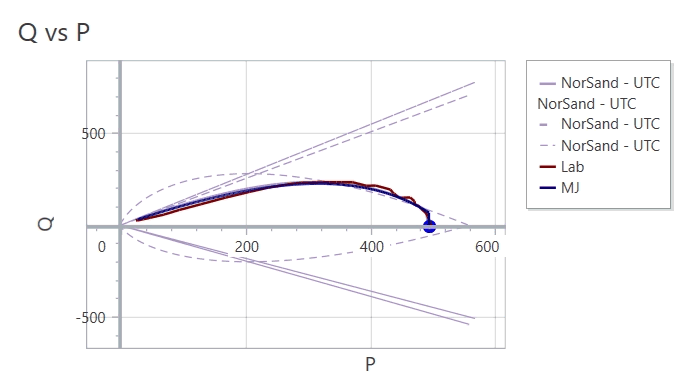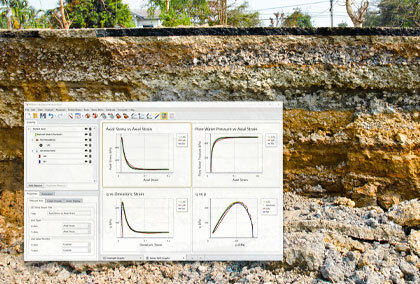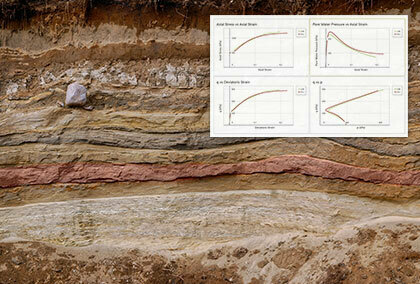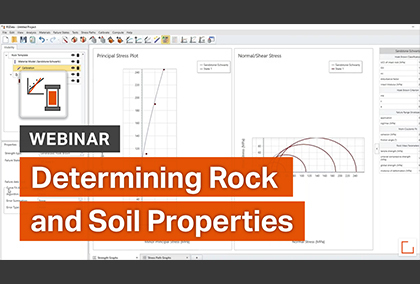Latest Features in RSData
RSData is a dynamic analysis tool for the strength and stress analysis of your rock and soil materials. Stay up to date with the latest features and integrations that you can incorporate into your geotechnical projects.
November 2020
Introducing RSData
The new RSData is divided into two main sections – Strength and Stress Path. The Strength section includes all the tools that the previous RocData program came with for analyzing rock materials plus several new enhancements. In this section, users can study both the shear strength of the material and the failure criterion. The program even includes a RocData template that mimics RocData and comes with materials already included. Unlike the previous RocData program though, the software includes a new, more intuitive interface and a much more extensive list of failure criterion to work with.
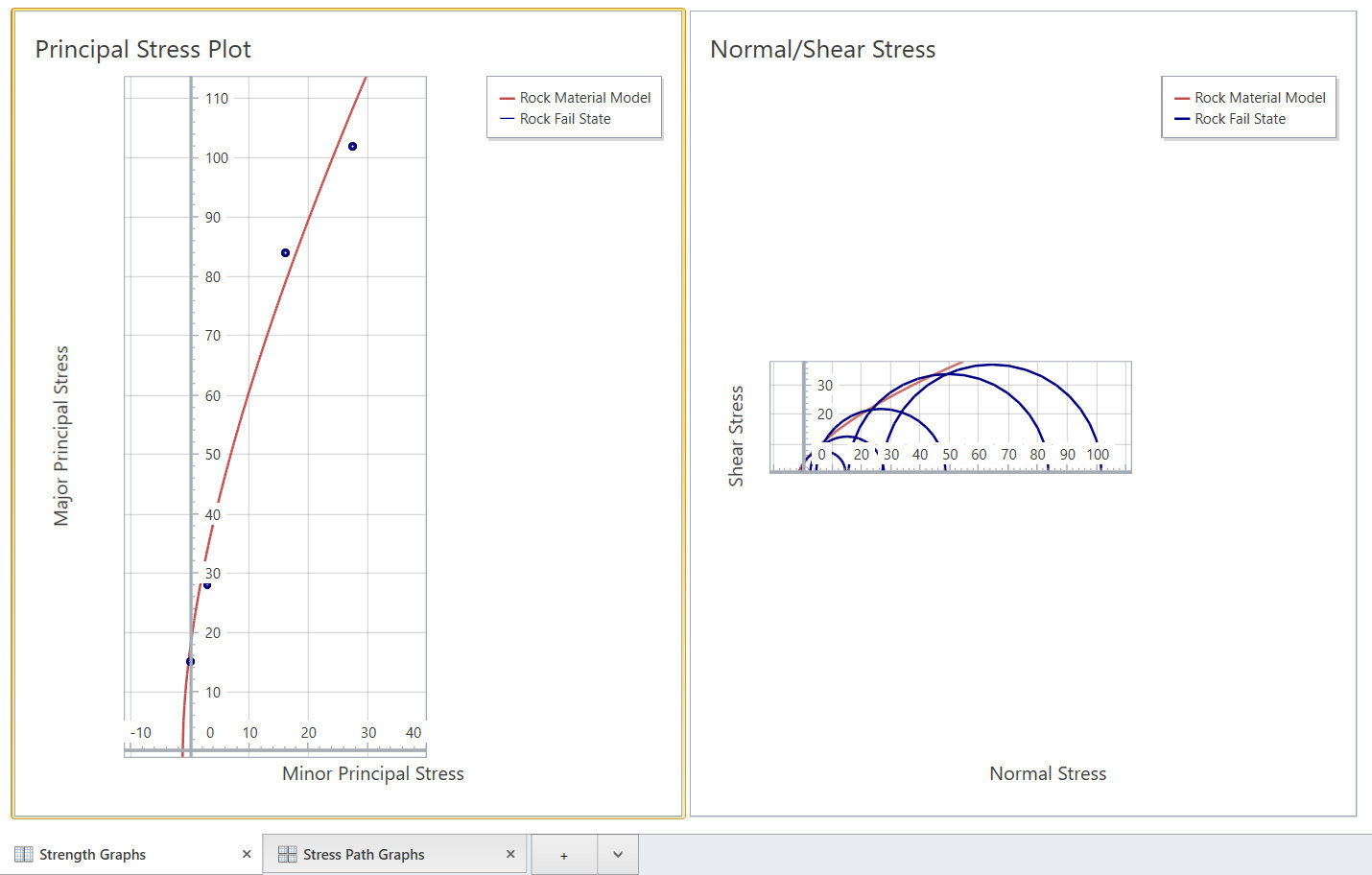
The Stress Path section of the tool is completely new and allows users to study the behaviour and deformation of complex materials. The section is about more than calculating the failure point of a material and is instead about looking at the behaviour of the material from start to failure, and then beyond. The Stress section allows you to adjust all sorts of parameters for your material and study the ensuing behaviour. For example, if you were studying sand and wanted to better understand the volumetric behaviour, you could adjust the dilation parameters of your material to look at volumetric strain both at and after failure.
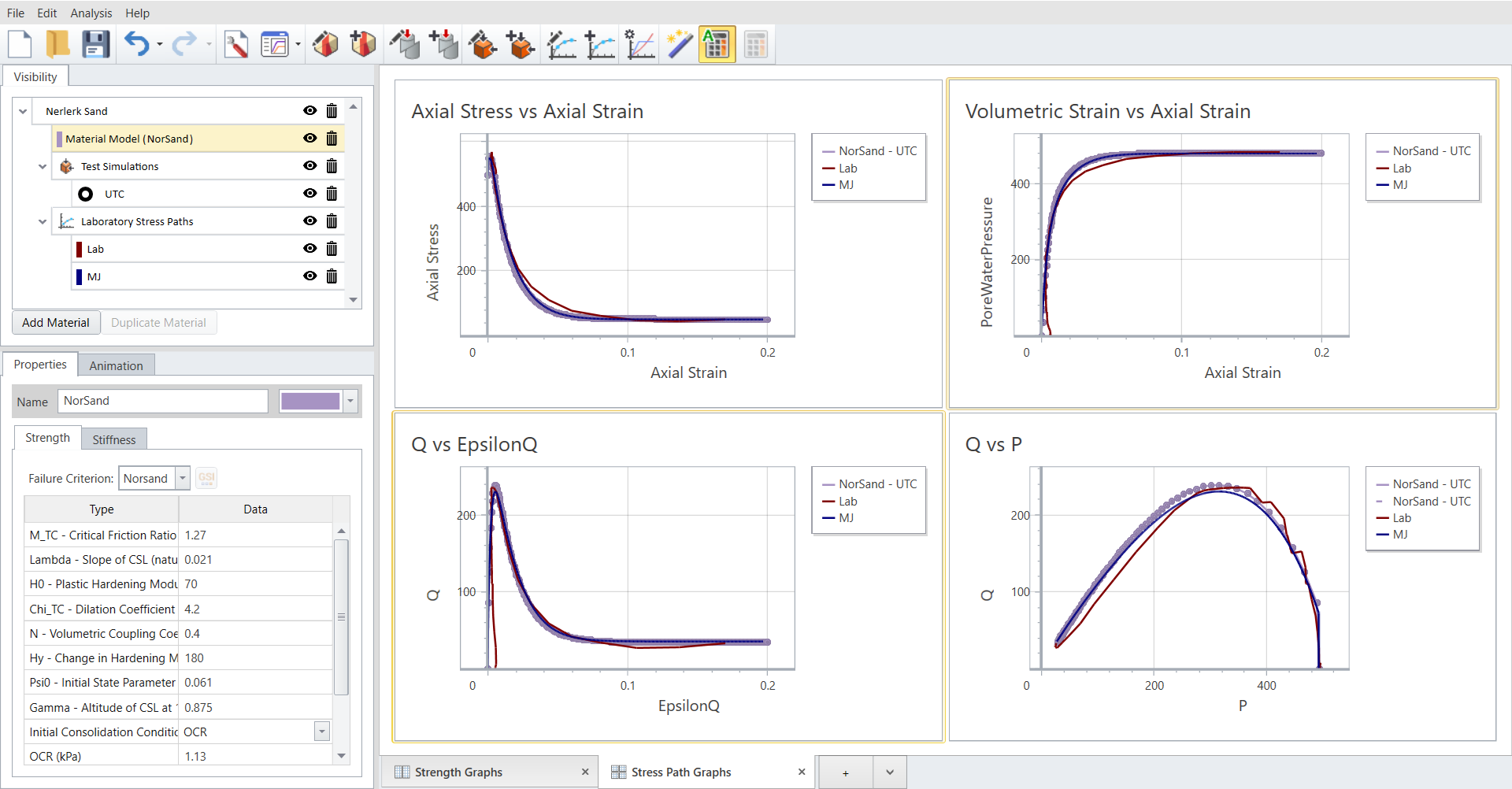
RSData includes all of the data stress paths already provided in other Rocscience programs and is a great companion piece for programs such as Settle3, RS2, RS3 or any that study the deformation process of a material under load. The RSData tool makes comparing test results simple as well. Whether you’re running a triaxial test, a simple shear test or something else, the program lets you run numerous simulations with different parameters applied to your material, and plot all of the different results on the same graph. This feature makes studying your materials as comprehensive a process as it is user friendly.
If all the various analysis and testing features weren’t enough, RSData includes other advanced features. With complex material models like clay for example, the behaviour of the material is rarely linear. Even plotting this on a graph isn’t always the best representation. For this, RSData includes an animation feature that allows you to better observe the changing behaviour of the material.
